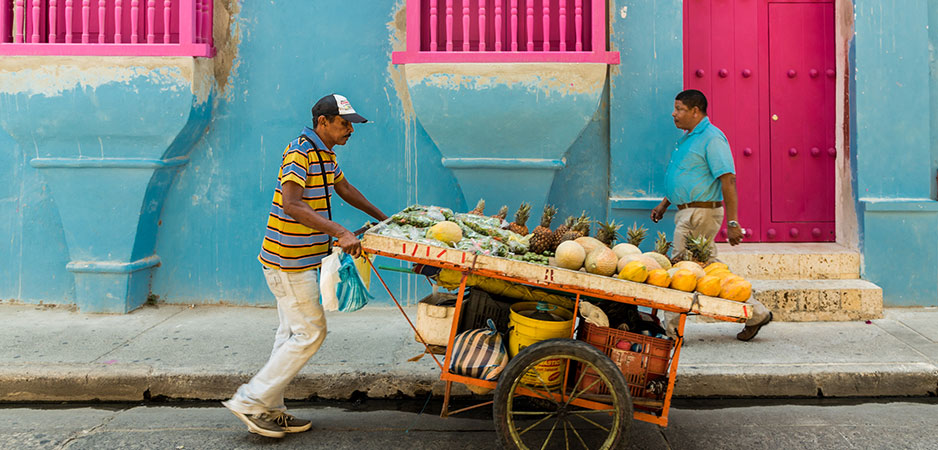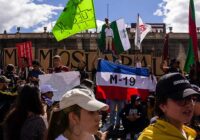Cartagena’s city center is a vibrant and colorful area full of international visitors. However, the outskirts paint a different story. Here, the invasiones, the shanty towns that surround the main city, are ridden with poverty. The effects of inequality stem beyond economic concerns as demonstrated by the country’s 56-year-long civil war, ignited by unequal conditions, particularly in land ownership. Recently, tensions have mounted as at least 13 people have died in clashes with law enforcement, with protests initially focusing on income inequality, corruption and fiscal austerity.
Will Colombia See a #MeToo Revolution?
The most critical step the government can take during this unstable time is to address inequality in access to the formal economy, education and land ownership that has been the underlying cause of conflict in Colombia for decades.
Most Unequal
While poverty fell from 49.7% in 2002 to 27% in 2018, Colombia remains one of the world’s 15 most unequal counties. Those with fewer economic opportunities, particularly in rural areas, are more likely to enlist in rebel outfits since these armed groups offer clothes, food, money and accommodation. For example, Venezuelan refugees in Colombia make up 10% of rebel fighters despite having no real connection to the conflict. Economic opportunity has shown to be one of the best deterrents of violence: As the economy continues to grow, violence has gone down. In 2018, the number of homicides reported in Colombia was at its lowest since the start of the civil war in 1964.
A lack of opportunities in the formal economy has limited growth while contributing to inequality. Only 35% of those employed contribute to the pension system, and only 30% of the population above the age of 15 have a debit card, much lower than the Organization for Economic Co-operation and Development (OECD) average of 80%. Because of large regional discrepancies in development, the government should consider differentiating the minimum wage by region and age. This can create more job opportunities depending on the needs of Colombia’s different regions, which are as diverse geographically as they are economically. Reducing non-wage labor costs can stimulate job creation by reducing the economic burden on employers. Simplifying the procedures for registering a business can further help new companies establish themselves and aid job creation.
Addressing educational inequities will also improve formal employment. Some 85% of workers with postgraduate education are employed formally, where only 9% of those without any education are employed. Colombia spends less than the OECD average per capita on education, and having a more equitable education system is paramount. According to Andrea Arevelo, a biotechnologist in Colombia, “Despite the fact that there is more space in private universities versus public ones, most people can only apply to public schools because they can’t cover the high cost of tuition in private universities.”
Increasing funding for lower-income regions should be a priority to help reduce educational inequality. The government should also add more incentive-based programs like Familias en Accion that provide financial rewards to parents who keep their kids in school.
Closing the Gender Gap
However, overall educational advancements in Colombia have not completely benefited women. While women have higher tertiary educational attainment levels than men, they have lower levels of formal employment participation, higher levels of unemployment, lower wages and less access to quality jobs. Better training for women in the formal economy is a start: Women’s unemployment is at 12% compared to 7% for men. Increasing women’s political participation can further close the gender gap in Colombia.
While other South American nations like Brazil and Argentina have recently had female leaders, Colombia has yet to elect a female president. In 2000, the government implemented a law requiring a 30% female quota on electoral lists. However, this has yet to make a significant impact at the highest level, with just two female governors elected in 2019. Improving economic opportunities for women can help level the playing field by bettering access to campaign financing.
Lastly, implementing the land reforms discussed during the 2016 peace agreement between the government and the Revolutionary Armed Forces of Colombia guerrillas is necessary to reduce inequality. “A lot of the inequality today in Colombia is a result of unequal land ownership. Currently, there is a massive concentration of land, especially in rural areas. That makes it difficult for people to develop their own small business or agricultural business,” says Fabio Acero, a management consultant based in Bogota.
Progress has been made, but as of 2019, only a quarter of the 7 million hectares of land the government planned to formalize in accordance with the peace agreement have been titled. Unequal land distribution among a small elite was a key driver of the Colombian Civil War in the 1960s and remains a major contributing factor to inequality today.
It is often a misconception that violence is the cause of poverty. It is true violence perpetuates poverty — conflict reduced economic growth in Colombia by a third in 2018. But economic inequality in Colombia, as in many countries, is the cause, not the result, of conflict. For example, the first two chapters of the 2016 peace agreement discussed land redistribution and equal political participation instead of focusing on diplomacy. Social and political reforms are the key to reducing economic inequality and achieving a more peaceful future — a key that the country’s leaders have in their toolbox.
*[Fair Observer is a media partner of Young Professionals in Foreign Policy.]
The views expressed in this article are the author’s own and do not necessarily reflect Fair Observer’s editorial policy.
Support Fair Observer
We rely on your support for our independence, diversity and quality.
For more than 10 years, Fair Observer has been free, fair and independent. No billionaire owns us, no advertisers control us. We are a reader-supported nonprofit. Unlike many other publications, we keep our content free for readers regardless of where they live or whether they can afford to pay. We have no paywalls and no ads.
In the post-truth era of fake news, echo chambers and filter bubbles, we publish a plurality of perspectives from around the world. Anyone can publish with us, but everyone goes through a rigorous editorial process. So, you get fact-checked, well-reasoned content instead of noise.
We publish 2,500+ voices from 90+ countries. We also conduct education and training programs
on subjects ranging from digital media and journalism to writing and critical thinking. This
doesn’t come cheap. Servers, editors, trainers and web developers cost
money.
Please consider supporting us on a regular basis as a recurring donor or a
sustaining member.
Will you support FO’s journalism?
We rely on your support for our independence, diversity and quality.






